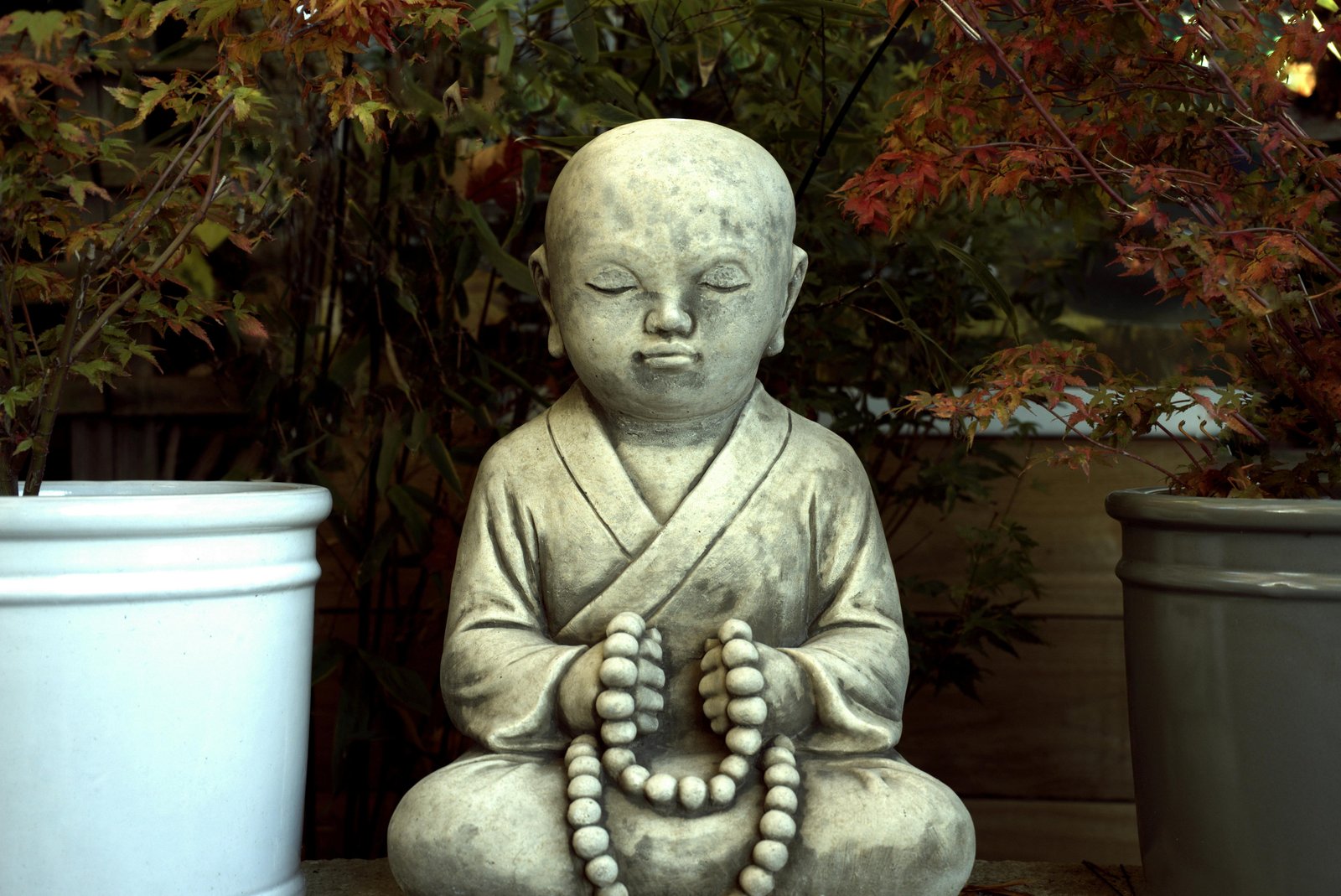Once when Swami Vivekananda went to Varanasi, a group of monkeys chased him. The natural reaction of an average person to such a situation would be fear. Swamiji too wanted to run away lest the monkeys do harm to him. Just then a monk shouted to him, “Face the brutes.” Swamiji turned back and faced the monkeys. Immediately they ran away.
Challenging situations do come as life cannot be all sunshine. We have to face every challenging situation boldly, being fully conscious that we have the power to overcome the situation.”
What is Stress?
Stress is how your body and mind respond to things that you feel overwhelming or challenging. World Health Organisation defines stress as “a state of worry or mental tension caused by a difficult situation. When we face challenges or threats, as human beings we have a natural tendency to address them, we do that from a point of stress. When under stress we tend to respond in different ways; our well-being depends on how to respond to stress.
Cleveland Clinic has classified stress in forms – acute stress, episodic acute stress, and chronic stress.
Acute Stress
It is a short-term stress that arises and subdues often, having both positive and negative impacts. It is a feeling of riding a roller coaster, quite commonly found in almost everyone, typically arising from specific events or situations such as a looming deadline at work or home front, an argument with a close one, or an unexpected challenge.
Episodic Acute Stress
Acute stress on a regular basis manifests as episodic stress. With prolonged exposure to this kind of stress, one never gets the time to return to a calm, relaxed state. Professionals such as healthcare professionals, teachers, emergency services, lawyers, and media professionals are frequently affected by episodic stress.
Chronic Stress
It results from ongoing pressures and demands, issues such as financial worries, job insecurity, unhappy relations, marital scars or prolonged illness, and other unexpected and persisting challenges that might be overwhelming. Managing stress due to these issues is crucial and critical because the same leads to irrecoverable health issues. It may have a long-term effect on your emotional health and well-being if not figured out and proper initiatives are not taken at the right time.

Stress Effects
The effects of stress are varied and can have a significant toll on the body and mind. Starting from physical effects like cardiovascular issues to digestive problems, immune system suppression, muscular problems, sleep disorders, and others, to mental and emotional effects like anxiety, depression, cognitive impairment, emotional instability, burnout, and others, surface often if left unattended or untreated.
How does it affect your mind?
- It causes impaired judgment
- Leads to hurried decisions
- Clogs mind with unwanted negative thoughts
- Overthinking and unnecessary worrying
Ways in which it affects your body?
- Frequent illnesses
- Headaches
- Shortness of breathing
- Feeling exhausted and continuous fatigue
How does it affect your emotions?
- Makes you fussy
- Keeps you in a state of depression most of the time
- You get irritated by almost everything
- There’s an unexplained dip in your self-esteem and confidence
How it changes your behaviour?
- Makes you aggressive and restless
- You don’t feel hungry
- Causes insomnia
- You tend to encounter accidents of varying intensity

Stress Management Practices
Stress management is a strategic approach towards dealing with stress and neutralizing its effects. Thus, it encompasses several techniques and practices. One needs to regularly practice stress relief strategies to prevent it from becoming overwhelming.
Feeling good, physically, is most important of all. Certain physical activities like brisk walks every morning or at night after dinner are definitely stress busters.
Lifestyle modifications like healthy eating, adequate sleep, and time management can effectively bring balance to life.
Mindfulness and intended relaxation can also help; you can try meditation, deep breathing exercises, yoga, and progressive muscle relaxation. Alongside, there should be some social support like building strong relationships with understanding people, seeking support from genuine friends and family members, and engaging in social activities that can open up new pathways to understanding life and living.
In professional areas, therapy, counseling, and support groups for individuals struggling with chronic stress or mental health issues must be taken care of with empathy and compassion.
Different workshops and healthy yet interesting activities can pull out a person suffering from suppressive stress. However, there should be a healthy space and respect for the concerned individual who does not feel to socialize often and always. Certain distinctive areas of their choice must be honored and allowed to be handled with care, keeping in mind the apprehensions that may trigger if things go downhill.
At the end of each day, it is always good to take a moment and think about what one has accomplished despite several challenges and not to regret things that did not work out. This makes a person happier than ever.
Setting goals each day, week, or month is very helpful. Try to narrow down your views to feel more in control of the moment and long-term tasks. If needed, you can consult a counselor, or therapist to deal with the worries that have been triggering you often; it will help you to open up, seek the right guidance, and get the most effective solution.
It’s important to say ‘no’; in fact, you must do that. Remain positive and learn to say ‘no’ to handle stress in a much better way.
The ‘gratitude attitude’ is a great and one of the most effective ways to get into Zen mode and not get overburdened with anxiety about the future.
Try traveling whether with your chosen group or alone. Traveling with the right people helps to see life in a different light. Solo traveling builds confidence and a sense of responsibility to enjoy while taking care of oneself. Traveling lightens up one’s mind and is an ideal way to destress.
Life reset or a refreshing restart can give your life a different momentum; pick up unexpected challenges and move on sportingly.
Get back to your hobbies; find free time to pursue hobbies and passions like gardening, cooking, dancing, listening to music, singing, practicing arts and crafts, and others.
Surround yourself with positive-minded people to stay calm and poised. Practicing silence is a form of mindful meditation too; another form of stress buster where one not only reflects inwardly but also gets a space to delve into the stressful situation and resolve it in the rightful manner.
One should always keep one’s personal space and deal with others outside the proximity; this would allow the mind to remain undisturbed and deal with life as it comes.
Mindfulness is crucial and one of the most effective ways to deal with stress. So, let us walk you through some essential details.

Understanding Mindfulness
Consciously deciding to stay focused in the present moment without being judgemental about it is mindfulness. It involves becoming aware of your thoughts, emotions, sensations, and surroundings without reacting to them, encourages acceptance of the current experience, fostering a sense of calm and clarity. The key to mindfulness is awareness. Regular mindfulness practice – such as meditation, breathing exercises, or mindful movement, can help train the mind to stay anchored in the present rather than becoming overwhelmed by past regrets or future anxieties. Ultimately, mindfulness isn't just about quieting the mind but about engaging with life as it unfolds, with a sense of curiosity, openness, and compassion.
How Mindfulness Works?
Being in the present moment, without dwelling on the past or worrying about the future is the simplest way to be mindful. It's about savouring the "here and now," appreciating each moment as it unfolds neutralizing the stressor effects.
Stressors create stress – fear, anxiety, a sense of failure, repeated failure, societal or work pressure, and related issues. Mindfulness can help you to check your responses to stressors and respond to them in ways that don’t affect you.
Mindfulness offers a practical, accessible tool for managing stressors. At the same time, by promoting present-moment awareness, emotional regulation, and relaxation, mindfulness helps reduce the physiological and psychological impacts of stress.
Increases Awareness of the Present Moment
Stress often arises from overthinking about the past or worrying about the future. Mindfulness encourages you to focus on the present moment, making you more aware of your thoughts, feelings, and bodily sensations as they occur. This shift in focus helps reduce the tendency to ruminate on past mistakes or future uncertainties, which are common triggers of stress.
How this helps: By anchoring attention to the present, mindfulness helps to interrupt the cycle of worry, promoting a sense of calm and clarity. This can make stressful situations feel less overwhelming because you're no longer caught up in "what if" scenarios.
Reduces Reactivity
In stressful situations, people often react impulsively. Mindfulness fosters a pause between stimulus and response, enabling individuals to observe their thoughts and emotions without reacting immediately. This space allows for more thoughtful, measured responses rather than knee-jerk reactions.
How this helps: Instead of reacting to stress with heightened emotions, mindfulness helps you respond with greater emotional regulation. This can lead to more effective problem-solving and a reduction in the intensity of stress.
Enhances Emotional Regulation
One of the key benefits of mindfulness is its ability to help individuals regulate their emotions. Stressful events can evoke intense emotions, but mindfulness allows you to observe and experience these emotions without getting overwhelmed by them.
How this helps: By practicing mindfulness, you develop the ability to acknowledge and process emotions in a healthy way. Instead of suppressing or avoiding negative emotions, you learn to approach them with curiosity and compassion, reducing the emotional burden of stress.

Promotes Relaxation
Mindfulness practices often include deep breathing exercises, body scans, or gentle meditation techniques that activate the body’s relaxation response. This counteracts the physiological symptoms of stress, such as increased heart rate and muscle tension.
How this helps: Regular mindfulness practice can lower levels of the stress hormone cortisol, leading to a calmer physical state. The relaxation response that comes with mindfulness can help reduce physical symptoms of stress like headaches, muscle tension, and fatigue.
Cultivates a Non-Judgmental Attitude
Stress often arises from a critical or judgmental mindset—whether it's judging ourselves for not doing enough or judging situations as "bad" or "unmanageable." Mindfulness encourages a non-judgmental approach, where experiences are accepted as they are, without attaching labels of "good" or "bad."
How this helps: By adopting a more neutral, accepting attitude toward your thoughts and emotions, mindfulness reduces self-criticism and feelings of inadequacy, both of which can exacerbate stress. This creates space for greater self-compassion and a more balanced perspective on challenging situations.
Improves Focus and Concentration
Stress often makes it difficult to concentrate or stay focused, leading to feelings of being overwhelmed. Mindfulness trains the mind to remain focused on the task at hand, which can improve cognitive functioning and productivity.
How this helps: By practicing mindfulness, you can enhance your ability to concentrate and stay present in each moment. This can reduce the mental clutter that often accompanies stress, leading to better decision-making and a more organized approach to handling challenges.
Promotes Resilience
Mindfulness helps individuals build psychological resilience, which is the ability to bounce back from difficult situations. By practicing mindfulness, you learn to approach challenges with a sense of curiosity and openness, rather than resistance or fear.
How this helps: With a more resilient mindset, you're less likely to be overwhelmed by stressors. Instead, you become more adaptable and able to face difficulties with a sense of calm and confidence that helps you navigate life’s ups and downs more effectively.

Understanding Meditation
Meditation is an ancient practice that involves focusing the mind and cultivating a state of awareness and relaxation. While it can be as simple as sitting quietly and paying attention to your breath, there are many different styles of meditation, each with unique methods and benefits. The goal of meditation is often to foster mindfulness, reduce stress, and improve mental clarity, however, different types of meditation attend to different aspects of the mind and body.
Mindfulness Meditation (Vipassana)
Mindfulness meditation, often rooted in Buddhist tradition, is one of the most popular forms of meditation today. It focuses on cultivating awareness of the present moment, observing thoughts, feelings, and sensations without judgment. Practitioners simply notice what arises in their mind, accepting it without attachment.
Benefits: Increases self-awareness, reduces stress, and enhances emotional regulation.
How it's done: Sit in a comfortable position, focus on your breath, and gently notice any thoughts or sensations. When your mind wanders, simply bring your attention back to the breath without judgment.
Concentration Meditation
Concentration meditation involves focusing attention on a single point of focus, such as a specific object, a sound, a mantra, or the breath. This practice helps train the mind to stay focused, often leading to deeper levels of concentration and mental clarity.
Benefits: Improves concentration, reduces mental clutter, and enhances attention span.
How it's done: Focus intently on one object, word, or sound (like a mantra or a candle flame). If distractions arise, gently bring your attention back to your point of focus.
Loving-Kindness Meditation (Metta)
Loving-kindness meditation, or Metta in Pali, is a practice aimed at cultivating compassion, empathy, and love for oneself and others. It involves silently repeating phrases that express goodwill toward others, such as "May I be happy, may I be healthy, may I live with ease," and gradually extending those wishes to others, even those with whom one may have conflicts.
Benefits: Increases feelings of empathy, compassion, and connection with others; reduces negative emotions like anger or resentment.
How it's done: Start by focusing on yourself and offering loving thoughts. Gradually extend these feelings to loved ones, acquaintances, strangers, and even people you may have difficulty with.
Transcendental Meditation (TM)
Transcendental Meditation is a simple and specific technique where practitioners silently repeat a mantra (a word or sound with no particular meaning) for 15-20 minutes, twice a day. This type of meditation aims to help the practitioner reach a state of restful alertness, where the mind transcends thought and experiences pure consciousness.
Benefits: Reduces stress, enhances mental clarity, and improves overall well-being.
How it's done: The practitioner sits with their eyes closed and silently repeats a personal mantra given by a trained TM teacher.

Zen Meditation (Zazen)
Zen meditation, or Zazen, is a sitting meditation practice that comes from the Zen Buddhist tradition. It involves sitting in a specific posture (usually cross-legged), focusing on the breath, and letting thoughts pass by without attachment. The goal is to reach a state of "just sitting," free from distraction.
Benefits: Promotes mindfulness, improves concentration, and cultivates inner peace.
How it's done: Sit in a comfortable, yet alert posture, often with legs crossed. Focus on the breath or on observing thoughts as they arise without reacting to them.
Body Scan Meditation
In body scan meditation, the practitioner mentally scans their body from head to toe, bringing awareness to each part and noticing any sensations, tension, or discomfort. It is often used as a way to relax the body and bring attention to physical sensations in a non-judgmental way.
Benefits: Reduces stress and tension, promotes relaxation, and increases body awareness.
How it's done: Lie down or sit comfortably, and bring your attention to each part of the body, starting from the toes and moving up to the head. Simply notice sensations without trying to change anything.
Guided Meditation
In guided meditation, the practitioner listens to a meditation guide (either in person or via audio or video) who provides instructions and prompts. This style of meditation can include visualization, relaxation, or imagery exercises to help the individual focus and relax deeply.
Benefits: Great for beginners, helps with relaxation and can target specific goals (e.g., stress relief, healing, confidence-building).
How it's done: You follow the instructions given by a teacher or recording, which may include visualizing peaceful scenes, repeating affirmations, or focusing on specific body areas.
Chakra Meditation
Chakra meditation is based on the concept of energy centers (chakras) in the body. Practitioners focus on each chakra, visualizing energy flowing freely through them and ensuring balance and harmony. This meditation may incorporate chanting specific sounds or mantras associated with each chakra.
Benefits: Promotes energy balance, emotional healing, and a sense of well-being.
How it's done: Focus on each of the seven chakras, starting from the base of the spine and moving upward, visualizing light or energy at each point and meditating on its color and qualities.
Yoga Nidra (Yogic Sleep)
Yoga Nidra is a form of guided meditation that induces deep relaxation, often described as "conscious sleep." It involves lying down in a comfortable position and listening to a guide as they lead you through stages of relaxation, body scanning, and visualizations.
Benefits: Deep relaxation, reduces stress, and enhances sleep quality.
How it's done: Typically done lying down, you follow a guide's instructions to progressively relax each part of the body, entering a state between sleep and wakefulness.
Movement-Based Meditation
Some forms of meditation incorporate gentle movement as a way to focus the mind and body. Practices like Tai Chi, Qigong, or walking meditation combine mindful movement with breath awareness, helping practitioners stay present while engaging the body.
Benefits: Improves flexibility, reduces stress, and promotes relaxation through movement.
How it's done: Engage in slow, deliberate movements, often coordinated with breath, while maintaining mindful awareness of the body’s sensations.
How Meditation Works?
Meditation is a practice that can have profound effects on both mental and physical health. Let us walk you through it for a good understanding of the same.
Mental Health Benefits:
- Stress Reduction: Meditation is well-known for its ability to reduce stress by calming the mind and reducing the production of stress hormones like cortisol. Regular practice helps break the cycle of anxiety and worry.
- Improved Focus and Concentration: Meditation enhances attention span and cognitive function. It helps increase concentration, mental clarity, and the ability to stay present.
- Emotional Regulation: It helps individuals manage emotions, reducing the intensity of negative feelings like anger, anxiety, and frustration, while promoting emotional resilience and balance.
- Reduction in Anxiety and Depression: Studies have shown that mindfulness meditation can reduce symptoms of anxiety and depression, as it encourages non-judgmental awareness of thoughts and feelings, helping individuals detach from negative mental patterns.
- Better Sleep: Meditation promotes relaxation, making it easier to fall asleep and stay asleep. Practices like Yoga Nidra or mindfulness before bed can significantly improve sleep quality.
Physical Health Benefits:
- Lower Blood Pressure: Meditation has been shown to reduce blood pressure by promoting relaxation and reducing the body's stress response, which can have long-term benefits for heart health.
- Improved Immune Function: Regular meditation can enhance immune system functioning, making the body more resilient to illness by reducing stress and boosting overall vitality.
- Reduced Pain Perception: Meditation, particularly mindfulness and body-scan practices, can help manage chronic pain by altering the brain's perception of pain and fostering a more relaxed response to discomfort.
- Decreased Muscle Tension: Meditation activates the body's relaxation response, reducing muscle tension, headaches, and physical discomfort associated with stress.
Healthier Heart: By reducing stress, improving sleep, and lowering blood pressure, meditation can contribute to better cardiovascular health, reducing the risk of heart disease.

Benefits of Mindfulness and Meditation for Successful Stress Management
When it comes to managing stress, mindfulness and meditation rock the show. Both practices promote relaxation, enhance emotional regulation, and help individuals cope with life's challenges in a healthier, more balanced way. Here’s a brief look at their key benefits for stress management:
Reduces Stress Hormones
Mindfulness and meditation lower levels of cortisol, the body's primary stress hormone. By calming the mind and promoting relaxation, these practices counteract the physical effects of stress, helping you feel more at ease.
Improves Emotional Regulation
Both practices teach you to observe your thoughts and feelings without judgment, helping you become less reactive to stressors. This leads to better emotional control, reducing feelings of frustration, anxiety, and overwhelm in stressful situations.
Enhances Focus and Clarity
Meditation and mindfulness improve concentration and focus by training the mind to stay present. This can reduce mental clutter and make it easier to tackle tasks or challenges without feeling scattered or stressed.
Promotes Relaxation
These practices activate the body’s relaxation response, slowing the heart rate, reducing muscle tension, and promoting a calm state of mind. This helps alleviate the physical symptoms of stress, like headaches, tight muscles, and shallow breathing.
Increases Resilience
Mindfulness and meditation build resilience by helping you approach stressors with greater awareness and a non-judgmental attitude. This allows you to handle difficult situations more effectively, bounce back quicker, and maintain a sense of inner calm.
Improves Sleep
Regular meditation can improve the quality of sleep by reducing stress and promoting relaxation before bed. Mindfulness techniques, such as body scans or deep breathing, can also help ease insomnia caused by stress.
Cultivates a Present-Moment Focus
Stress often arises from worrying about the future or ruminating on the past. Mindfulness encourages living in the present moment, which helps you let go of these stress-inducing thoughts and focus on what you can control now.

How Mindfulness Improves Concentration and Decision-Making?
Mindfulness, the practice of focusing on the present moment with non-judgmental awareness, has a powerful impact on both concentration and decision-making. Here's how it helps:
Enhances Focus
Mindfulness trains the brain to focus on the present, reducing distractions and improving sustained attention. By regularly practicing mindfulness, you strengthen your ability to direct your attention to a single task, even in the face of distractions, which leads to better concentration in everyday activities.
Improves Cognitive Clarity
Mindfulness clears mental clutter and helps you process information more efficiently. By quieting the mind and reducing the constant chatter of thoughts, you can think more clearly, absorb information more effectively, and avoid cognitive overload, leading to sharper focus during complex tasks.
Promotes Emotional Regulation
Mindfulness helps you manage emotions, which is crucial for making clear, rational decisions. By becoming more aware of emotional reactions, you can detach from impulsive or reactive tendencies and approach situations with greater calm and objectivity.
Strengthens Working Memory
Regular mindfulness practice has been shown to improve working memory—the ability to hold and manipulate information over short periods. This enhances your capacity to juggle multiple pieces of information and make well-informed decisions under pressure.
Reduces Impulsivity
Mindfulness encourages a pause between stimulus and reaction. This break helps prevent impulsive decision-making and allows you to assess options more thoughtfully, leading to better, more deliberate choices.
Increases Self-Awareness
Mindfulness enhances self-awareness, allowing you to recognize your thought patterns, biases, and habitual responses. This awareness enables you to make more conscious and aligned decisions, rather than being influenced by automatic, reactive thinking.
Effective stress management through mindfulness and meditation offers a powerful toolkit for enhancing well-being in our fast-paced, often overwhelming world. By cultivating awareness of the present moment and practicing non-judgmental acceptance, these techniques help individuals break free from the cycle of stress, reduce anxiety, and promote a sense of calmness. Consistent practice not only improves emotional resilience but also fosters a deeper connection to oneself, leading to greater overall mental clarity and emotional balance. As we continue to face daily challenges, integrating mindfulness and meditation into our routines can serve as a transformative, lifelong approach to managing stress and improving quality of life.


